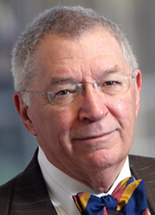
Bender
COLUMBIA – The Supreme Court of South Carolina ruled last week in a case brought against the Hilton Head Island-Bluffton Chamber of Commerce to force that organization to disclose how it spent tax money and a $1 million grant from the State of South Carolina. The Supreme Court ruled that the organization was not a public body subject to the Freedom of Information Act disclosure requirements. The trial judge had ruled that the Chamber must disclose how the money is being spent. The Bluffton-Hilton Head Chamber appealed, and its appeal was supported by the Greater Myrtle Beach Chamber of Commerce, another recipient of large sums of accommodations tax revenue. The Supreme Court ruled in a divided opinion that the General Assembly had created an exception from the general disclosure requirements for private entities that received accommodations tax funds.
It is impossible to follow the money these organizations receive as the disclosure required by the governmental entities funneling the public money to the chambers is a sham. For example, the Bluffton-Hilton Head Chamber reported in 2012 that it had an expenditure of public money in the amount of $263,792 for “Leisure Media & Promotions.” Who got the money? What was provided in return? Nothing disclosed by the chamber provides an answer to these questions.
How would money laundering work in this environment? The indictment of Sen. John Courson is instructive. Courson is accused of making payments from his campaign account to a political consultant. According to the indictment the consultant in turn kicked some of the money back to Courson. If that is true, campaign money was laundered and became clean money for personal use by Courson.
How could it work with accommodations tax money? The entity receiving the tax money could contract for some vague purpose, such as “Leisure Media & Promotions,” receive a “discount,” “rebate,” or “refund,” and the public money coming back would be cleansed for uses that would be illegal with public money, for example campaign contributions to candidates favored by the organization.
Does that happen? We don’t know because we can’t follow the money, but the Supreme Court’s majority endorsed a scheme it said was created by the General Assembly to allow millions of dollars of tax money to go to private organizations subject only to the oversight of the officials who transferred the money in the first instance. Oversight provided by the very folks who might be the recipients of donations from laundered funds.
Now, it is possible that the Supreme Court majority got it wrong, and the General Assembly did not intend to create a laundromat for public money generously transferred to private entities. If members of the General Assembly believe as the FOIA says, that it is vital in a democratic society that public business be conducted in an open and public manner, including the business of spending public money to promote tourism, the fix is simple. Amend the accommodations tax statute to state clearly that any organization receiving accommodations tax funds from a governmental body is a public body subject to the disclosure requirements of the FOIA.
If the General Assembly won’t take that step, we would be justified in believing that some of the laundered money is finding its way into the pockets of members of the General Assembly.
Jay Bender is a former attorney for the South Carolina Press Association.










